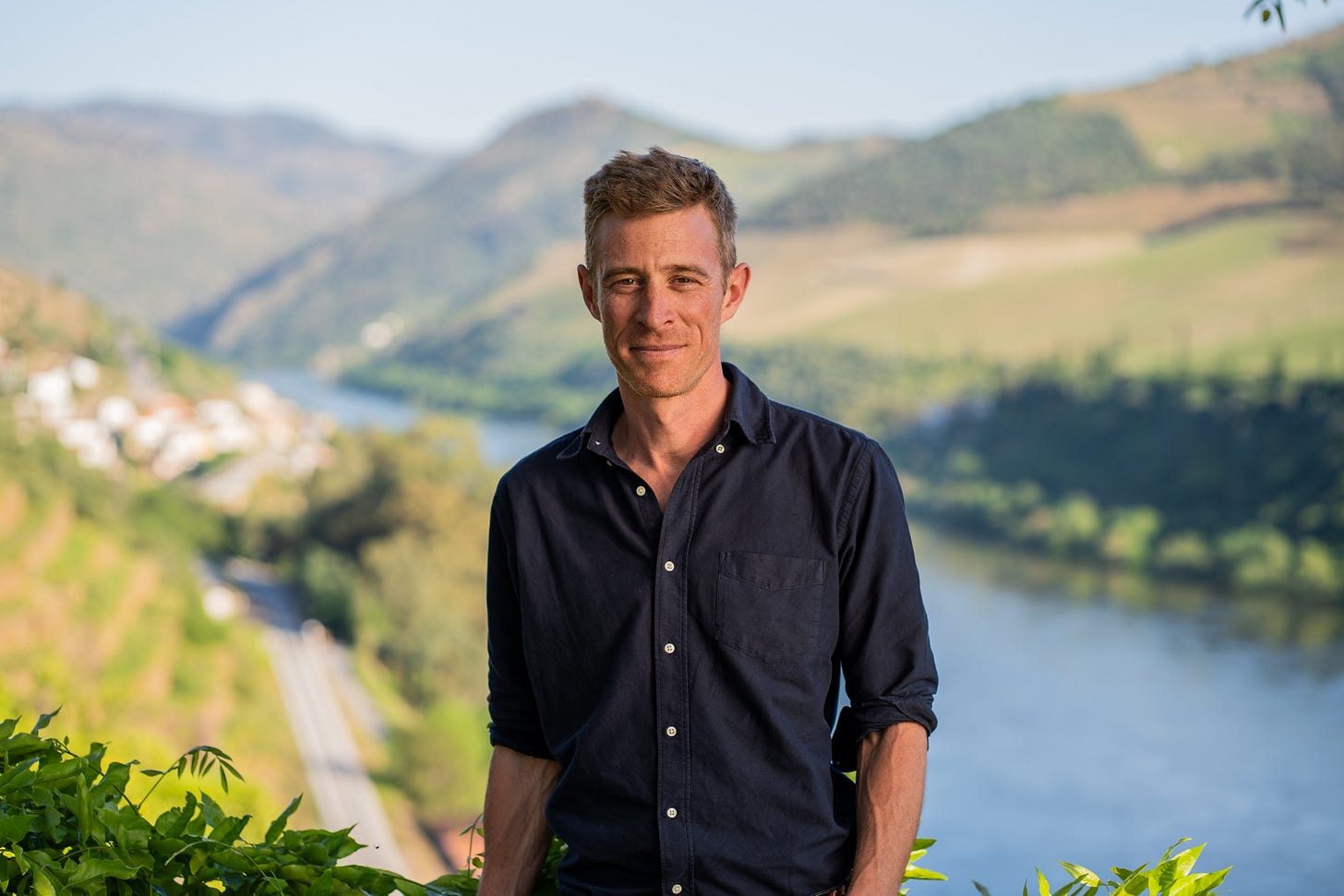For Symington Family Estates, sustainability is the future
A venerable Port producer takes a leading role in addressing the climate challenge
1. Sustainability at the Core:
Symington Family Estates integrates sustainable practices like organic viticulture, carbon reduction, and certifications (B Corp, LEED Gold) to address climate change and ensure long-term resilience.
2. Legacy Meets Innovation:
The fifth generation builds on a family tradition of stewardship by adopting eco-friendly measures that save costs, adapt to market demands, and secure the business for future generations.
3. Industry Leadership:
As a founding member of climate action initiatives, the Symingtons lead by example, inspiring change in the wine industry while meeting growing consumer interest in sustainability.
Rob Symington was running his own company in London, helping people “make unconventional career changes,” when he heard the call of tradition. Ten years out of university, his father and uncles began asking when he would join the family business as part of the fifth generation in their Port empire.
“It wasn’t a hard sell,” Symington admits. “We have the privilege of making wine in one of the most beautiful regions of the world.”
Still, he hesitated. “Would the generation currently in charge understand the severity of the climate challenges we face? And would there be the appetite to do something about it?” He recognized that, as one of Portugal’s largest and most recognized producers, they had a responsibility to lead by example.
Symington returned to Portugal, joining his cousins in helping guide the family business. Some of the fifth generation are working abroad in distribution, while the sixth generation is already scampering through the vineyards. Under the leadership of Rupert Symington and the fourth generation, Symington Family Estates oversees renowned Port houses Graham, Warre, Dow, and Cockburn, and has expanded into table wines with labels like Altano and Quinta do Vesúvio. They’ve also ventured into the Alto Alentejo with Quinta do Fonte Souto.
Rob’s role was to spearhead the company’s sustainability efforts. While some climate-related work had already begun, it was siloed. His job was to unify these efforts and create a cohesive, forward-looking strategy.

Today, Symington Family Estates is a global leader in sustainable wine production. The company was the first in Portugal to achieve B Corp certification and is a founding member of International Wineries for Climate Action. These initiatives focus on cutting carbon emissions, with B Corp requiring re-certification every three years to ensure accountability and continuous improvement.
“We’re doing three things as part of our sustainability program,” Symington says. “We’re reducing our contribution to the problem. We’re adapting to climate change in the vineyard and throughout our operations. And we’re using our voice, our platform, to call for wider action. You can’t call for wider action unless you’re doing the first two, or you look like an idiot.”
In 2023, the family celebrated the first vintage at Adega de Ataíde, a new winery in the Douro Valley near Spain. It is Europe’s first winery to achieve LEED Gold certification for energy and water efficiency. This state-of-the-art facility supports wines from Quinta do Vesúvio, Quinta do Ataíde, and the Altano range. Additionally, the company champions organic viticulture, with 112 hectares under certification—the largest in northern Portugal.
Despite the initial financial investment in pursuing certifications and changing operations, going sustainable actually saves money.
Sustainability, Rob says, isn’t just a buzzword; it’s rooted in the family’s long-term mindset. “Most family wine producers think beyond annual dividends. They focus on the community and the environment because their future depends on it.” For earlier Symington generations, this meant philanthropy. For today’s leaders, it means adapting farming, packaging, and marketing to the existential crisis of climate change.
The journey has brought surprises. Contrary to the belief that sustainability costs money, Symington has found it often saves. “Lighter bottles cost less. Solar pays for itself in four years here, and now 23% of our electricity comes from it. Using less fertilizer, water, and treatments in the vineyard also reduces costs while preparing us for future challenges.”
Market forces are also driving change. Scandinavian and Canadian monopolies now impose bottle weight limits, forcing wineries to adapt if they want to export. Consumers, too, are increasingly interested in sustainability, with more than 100,000 people visiting Symington’s wineries annually. “They don’t just want wine at a price,” says Symington. “They want to know what we’re doing about climate and social responsibility.”
For Symington Family Estates, sustainability is not a short-term project but a perpetual commitment. For the fifth generation, it’s about ensuring the company thrives—for their children, their vineyards, and the world they will inherit.
(A different version of this article appeared in the December 2024 issue of SOMM Journal.)




More wineries should emulate them. I know Silver Oak has accomplished a lot in that direction in CA, but I suspect there's also a lot of greenwashing going on elsewhere.
I was in Porto in November (10 days in Portugal) and drank more excellent Port in that time span than I likely have consumed in the past 10-years combined. And I do drink Port. I visited their tasting rooms and the emphasis on sustainability is evident everywhere you go.